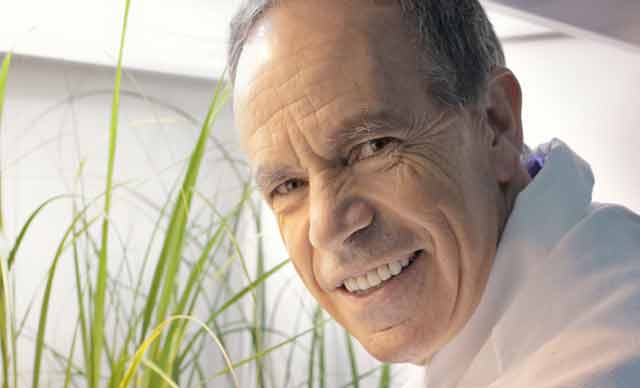The founding plant scientist at the University, Professor Steve Long, has been elected as a new Fellow of the Royal Society.

Professor Steve Long
Professor Long is a pre-eminent plant environmental physiologist and the honour is in recognition of his pioneering work in photosynthesis and improving crop yield.
The plant group at Essex began with Professor Long’s appointment in 1975 and, along with Professor Neil Baker who joined Essex a year later, formed a group which went on to gain an international reputation in photosynthesis.
Now at the University of Illinois, Professor Long is a world leader in research into the limits to photosynthetic productivity of crops, and how these are altered by global atmospheric change. His pioneering work has dramatically altered understanding of how global change impacts major crops and biological approaches to adapting and engineering productive potential.
"To be elected Fellow of the world's most eminent and oldest scientific academy in continuous existence is a distinction and recognition that for me cannot be matched," he said.
Speaking of his time at Essex, where he spent more than 20 years of his scientific career, Professor Long said: "Essex gave me the freedom and support to pursue my research interests and appointed colleagues that allowed us to build a photosynthesis research team that positioned Essex to become the international leader it is today. This is evidenced by a continuous string of research awards, most recently the international Gates Foundation (RIPE) award to increase crop yield through engineering improved photosynthesis.”
Head of the School of Biological Sciences Professor Christine Raines, who has worked with Professor Long on a number of projects including the recent Gates RIPE project, said: “Steve was always a serious and committed research scientist who was also dedicated to his students, encouraging and supportive of junior academic staff and who had a rigorous approach to research.”
Sir Paul Nurse, President of the Royal Society, said: “Science helps us to better understand ourselves and the natural world around us and has a huge role to play in future economic prosperity and the health of our planet and its seven billion people. In the coming decades we are going to find ourselves more and more dependent on the solutions. Science can offer to grand challenges such as food shortages, climate change and tackling disease. These scientists who have been elected to the Fellowship of the Royal Society have already contributed much to the scientific endeavour following in the footsteps of pioneers such as Newton, Darwin and Einstein and it gives me great pleasure to welcome them into our ranks.”
Ends
Note to Editors
For more information please contact the University of Essex Communications Office on: 01206 872400 or e-mail: comms@essex.ac.uk.
The Royal Society is a self-governing Fellowship of many of the world’s most distinguished scientists drawn from all areas of science, engineering, and medicine. The Society’s fundamental purpose, as it has been since its foundation in 1660, is to recognise, promote, and support excellence in science and to encourage the development and use of science for the benefit of humanity.
The Society’s strategic priorities emphasise its commitment to the highest quality science, to curiosity-driven research, and to the development and use of science for the benefit of society.
For further information please visit: royalsociety.org. Follow the Royal Society on Twitter at: twitter.com/royalsociety or on Facebook at: www.facebook.com/theroyalsociety.